The Philippines is one of the first countries who witnessed Asian hip-hop’s beginnings. The ’80s witnessed the rise of a subculture in the local scene, when Americanisms were a second language, and profane tapes of Public Enemy and N.W.A. were sneaked into teenagers’ Walkmans, traded among peers as if it were contraband. Hip-hop was fueled by African-Americans’ desire for artistic expression amid a system that continues to oppress them.
Given the country’s colonial past, it makes sense that Filipinos are drawn to such a means of expression. Filipino emcees have their rounds of braggadocio typical to the genre, but tied to a pride for their roots—think Francis M’s patriotic repertoire, or what his mentee, Gloc-9, offers in a track like “Balita.” Even the seeming superficiality of rapper bling and diamond grills are treated as retribution for a deprived past.
Read more: 6 artists bringing queer representation to hip hop and why you should give a shit
At the core of it, hip-hop spoke of freedom for marginalized groups. But how does it truly advance, when a fight like this operates in a subculture under fire for misogynistic representation? For this genre on the rise, the answer rings clear: the female emcee.
Back in the west, Queen Latifah gained ground in “U.N.I.T.Y.,” lifting herself from the sea of gangsta rappers spewing “bitch” as a placeholder for “woman.” The group Salt-N-Pepa flipped rap’s agenda, calling out the genre’s widespread slut-shaming in “None of Your Business.” In the Philippines, female names rose amid the Francis M’s and Andrew E’s of the rap locale.
While Magalona’s wife, Pia Arroyo, is touted as the first recorded female rapper, women gained traction in the ’90s scene with Lady Diane’s “The First Lady of Rap,” and MC Lara’s eponymous album.
Read more: Here are 6 underrated frontwomen from local bands that we look up to
Now, there’s an air of acceptance for female emcees in the age of Nicki Minaj and Cardi B topping Billboard charts. But in the industry’s system, the struggle for equality continues. The term “female rapper” or “femcee” itself is an area of debate, as some wish not to create the distinction. Why call attention to a gender descriptor, when “rapper” or “emcee” suit just fine? As explained by the A.Side, adding “female” to the name plays into the genre’s great divide, taking part in hip-hop’s case of Othering. In contrast, certain female artists have opted to take ownership of “femcee,” viewing the gendered title as a badge of honor.
The reinvention of hip-hop goes beyond the title of “femcee.” Female emcees are reclaiming a genre with misogyny woven down to its roots. Creative collectives such as the Cavite-based WeMan PH push for Filipinas’ artistic representation, breaking the barriers of patriarchal conventions. Last Aug. 24, the collective hosted performances featuring an all-female lineup, including the roster of Shnti, Bueni, Drea J, Kali, Parvati, Nicole Anjela and Psyche. For these underground rappers, the femcee revolution is still underway—but we’re here to witness it.
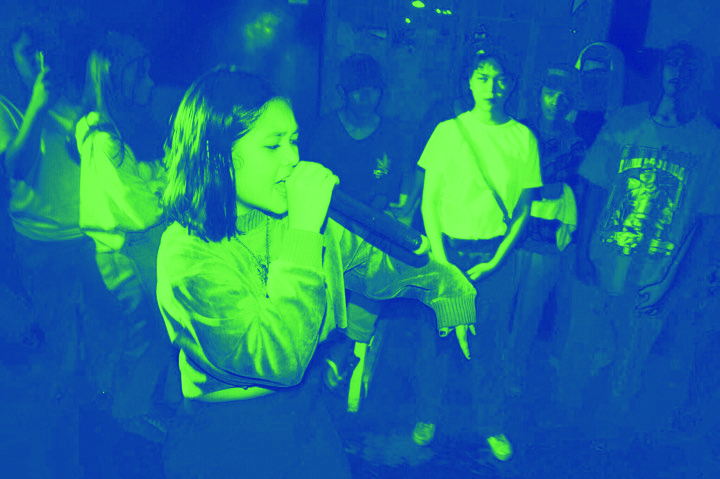
Bueni (Photo by Ma Lopez)
What first got you into hip-hop? Which emcees did you listen to and think, “That could be me one day”?
Shnti: If you had asked me if I’d be an emcee back in the day, I would’ve said no. I didn’t know if I had what it took to write rap and rap fast, until I tried it out for myself. I’ve always been into hip-hop, all thanks to my parents who influenced me by blasting ’90s tracks and R&B hits.
Bueni: I’ve been exposed to different genres of music since my family is musically-inclined. The first female emcee I came upon was Ruby Ibarra. Her songs are a work of art, and she inspired me to write songs about being a teenager in our current society.
Drea J: I remember peeking through my cousin’s room every time he had his friends over. They would listen to Tupac, Biggie, and Wu-Tang Clan until they got pumped up. I even memorized [Wu-Block’s] “Drivin’ Round.” Back then, I never told anyone that I could rap.
Kali: My older brothers always wrote rap songs. I would listen to their playlists, then I grew up to love the genre. In 2017, I heard a track from DB of Baryo Berde. It made me feel like I had to do something, that I needed to speak not only for myself, but for the rest of women. I’m a big fan of DB, and now I’m performing with her at the same stage.
Parvati: It was when my dad was switching channels on TV, then came across Francis M. The beat made me feel like I was the baddest and toughest gal in the world. I hold on to that feeling until this day.
Nicole Anjela: I’ve been into hip-hop since I was nine years old. A lot of people around me listened to the genre. Singing was never really it for me, because I didn’t think I’d be in the industry given the range of my voice. I can’t belt out high notes like singers here. But after listening to artists like Jhene Aiko, June Marieezy, JCon, and H.E.R., that’s when I thought that I could do this one day. They made me love my tone more.
Psyche: I’m new to the scene in terms of writing and making music, and I never really thought I’d do my own thing. Francis M and Gloc-9 were my childhood icons. As I grew older, lyrical rappers like Tupac, Biggie, and Kendrick Lamar have had a huge impact on me. I started writing a year ago to speak my mind, not for money or fame, but to spark a fire in the hearts of those who choose to listen. I know I still have a lot to learn, and I won’t be able to change the world through my songs alone, but I want to believe that I’ll be able to influence and empower the people of the future to do so. As Nas has said, “If the truth is told, the youth can grow.”
The problem here is that some people think that hip-hop isn’t intended for us. Women can spit bars on bars on bars and you will never know until you see us.
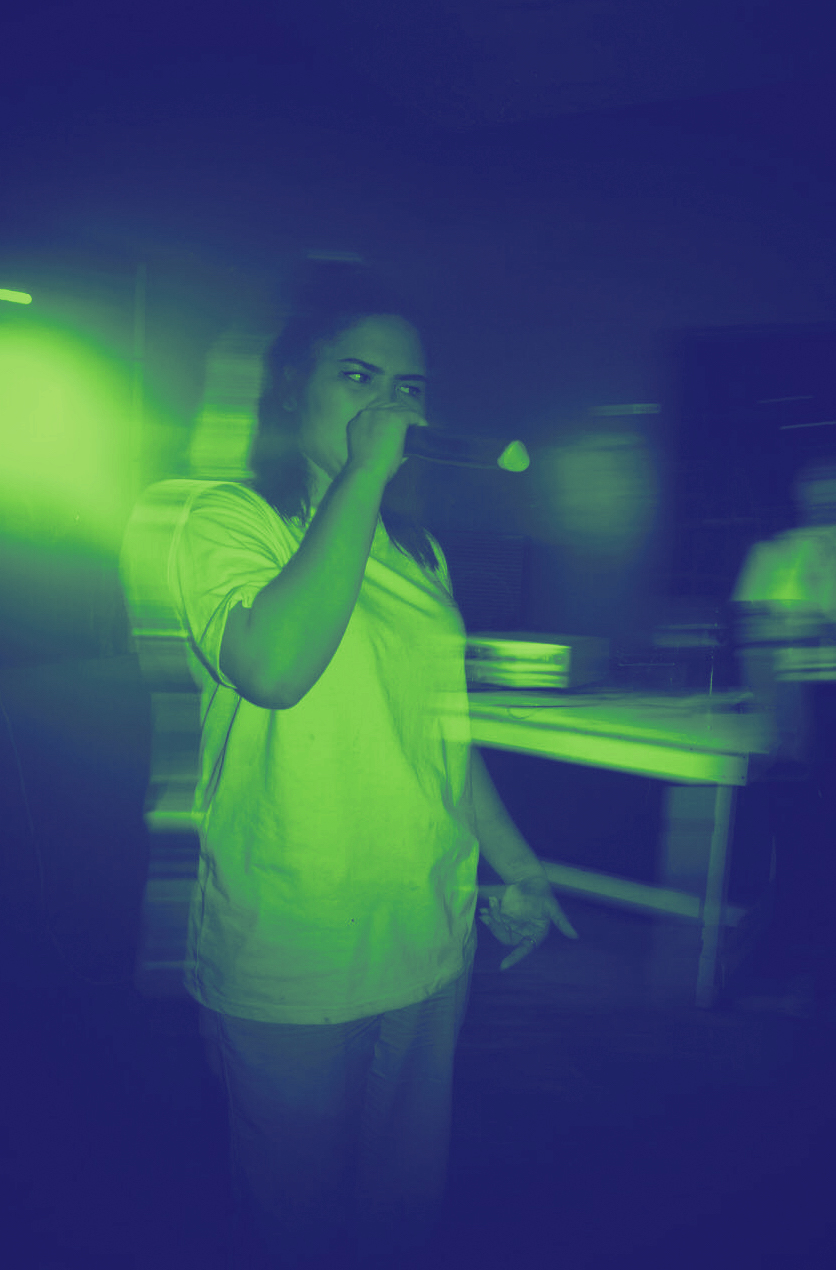
Kali (Photo by Alex Hepburn Taduran)
How has the presence of Filipinas in hip-hop changed through the years?
Psyche: Given the industry’s history of marginalizing the contributions of women, it’s easy to see hip-hop as a man’s world. Filipinas venture to stereotypically masculine activities, particularly in the hip-hop scene, because we realize that gender doesn’t affect the passion and drive of a person. The only way to liberate women from a patriarchal society is by normalizing gender equality, and raising children without having to teach them the same toxic beliefs that run the world today.
Shnti: Filipinas in the scene are inspiring even when their development involved a lot of doubts from themselves and those around. They took no shit and did what they love to do, while proving people wrong.
Bueni: Back in the day, groups like the Fugees struck and broke the gender norms. Now, it’s satisfying to see more women in a male-dominated scene. Although femcees face their share of criticism, women indulging themselves by breaking patriarchal standards has gone into a whole other level.
Parvati: Female emcees from across provinces are performing all over different stages. The change that’s happening is massive.
Drea J: I think we’ve surpassed the stereotype, where we only get a four-line chorus, having to sing it repeatedly with three different men rapping over it. We’re so versatile and creative that we can slay a beat better than half of the men in the scene—and that’s a fact.
Read more: The future is bright with NIKI
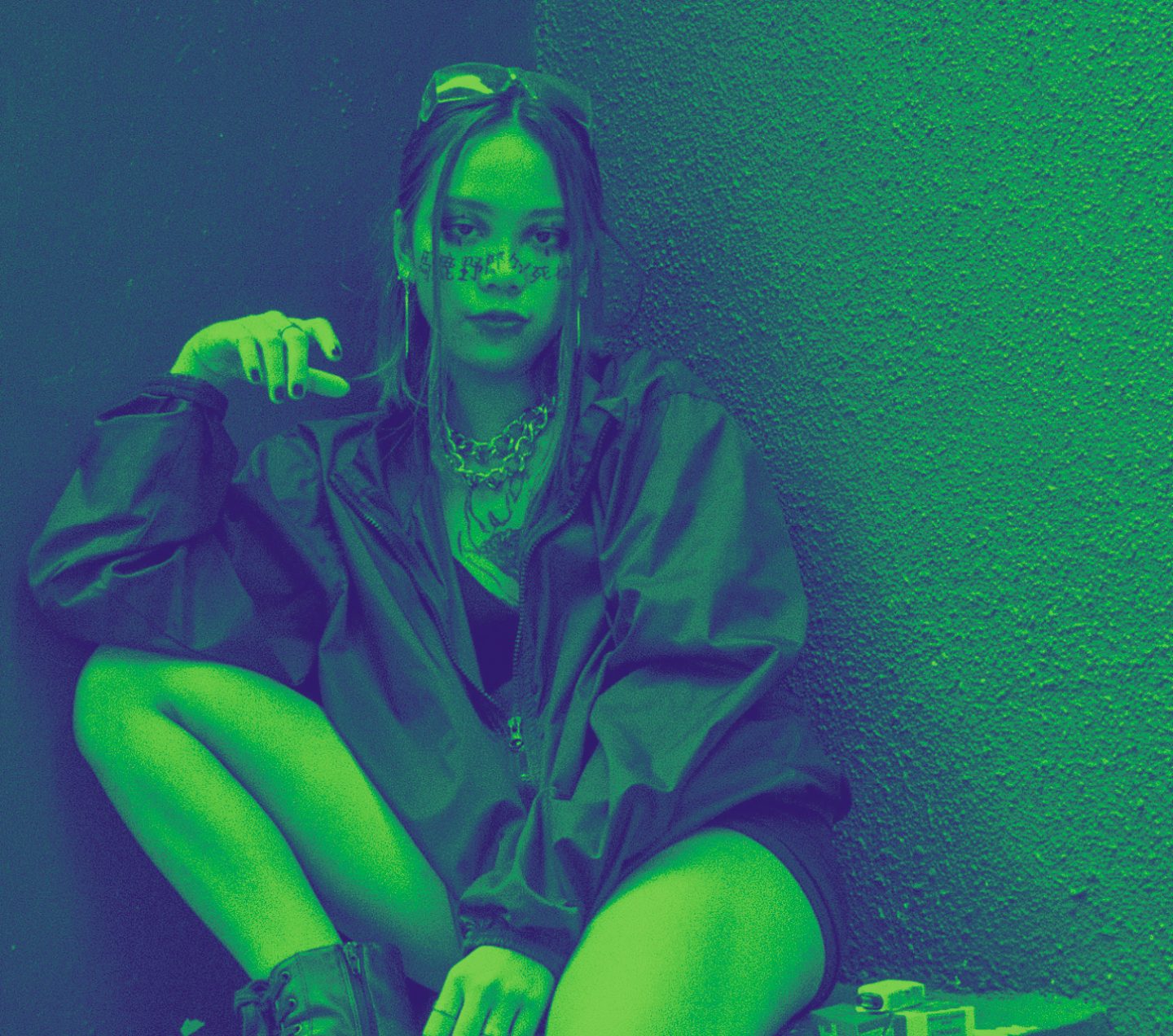
Shnti (Photo by Gauis Tugob)
Filipino hip-hop has long been dominated by men, and collectives are predominantly, if not all, male. Local hip-hop is also constantly evolving. What are your thoughts on the current situation of the local scene?
Kali: The genre’s getting stronger, and the critics’ noise is lessening. A lot of artists want to prove themselves and that definitely contributes to it.
Parvati: It’s obviously dominated by male artists. The underground scene is mostly attended by men, but not for long. We’ve got attacks that differ from what men can offer.
Bueni: The scene also has a lot of work that needs to be done, especially when they draw a line for artists just because they’re “women.” Fuck that. Anyone can make a song, that’s for sure. But not everyone can move your soul through lyrics.
Drea J: As an underground artist, I’m proud to say that we did it. This isn’t about being male or female, but the mere fact that these collectives that started from the bottom are now topping the charts. ’Yung dating sinasabi nilang “jologs,” ngayon sa kanila nakikinig. Anyone has the chance to make it, as long as these collectives continuously prove all the haters wrong.
Nicole Anjela: More people are listening to local acts without the fear of being called “jeje.” The country has a lot of great talent, lalo na sa underground, and I love that emcees, especially women, are getting more recognized.
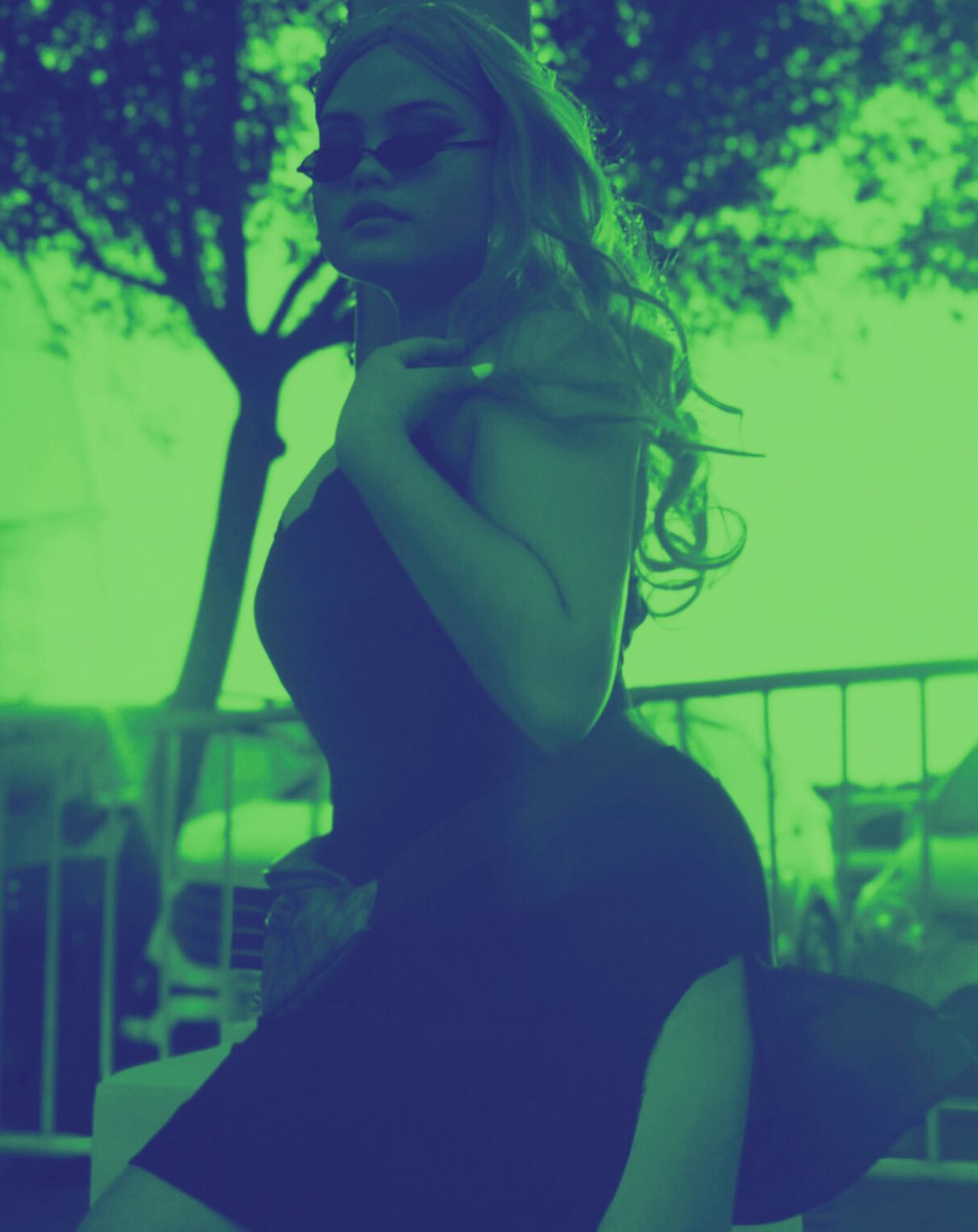
Parvati (Photo by Debbie Hortaleza)
The culture in hip-hop is rooted in misogyny, which is the genre’s major point of contention. As female emcees, how are you able to reclaim hip-hop?
Shnti: Even as a starting femcee, I had my fair share of experience involving misogynistic bastards. We shouldn’t let them interfere with what we do. Sticking to your guts can take you a long way; never doubt what you’re capable of doing. Isarado ang tenga sa mga masasamang salita, at isapuso ang iyong likha at gawa.
Kali: Before I entered the scene, I knew there would be struggles. A lot of people think this isn’t for us, but I still keep going. I can’t just let go of this passion just because people don’t like it. This isn’t only for myself, but for every woman.
Parvati: Hip-hop doesn’t have an age limit or gender. We can have the same impact on music fans that they give to their fans, maybe even more. The problem here is that some people think that hip-hop isn’t intended for us. Women can spit bars on bars on bars and you will never know until you see us.
Nicole Anjela: And having events like WeMan PH, where anyone can express themselves is one way of reclaiming hip-hop. This is especially true in the case of female artists, because now we have a stage where we feel appreciated.
Psyche: I create music opposing misogyny, proving that one can rap without having to objectify women. If we don’t change how we perceive women now, then I think we aren’t serving our purpose. Music travels through time, and one way to show how our generation left its mark is through expression, freedom, connection, and empowerment. Through rapping, I’m able to express thoughts, and seeing other people relating to [my music] is an inexplicable feeling of contentment. Hip-hop is not just a genre, but a lifestyle. And if we live a life that spreads hate and prejudice, not only toward women but toward whomever, then what kind of a life is that?
Read more: We’re happy “cute rap” and littlebootycall exist
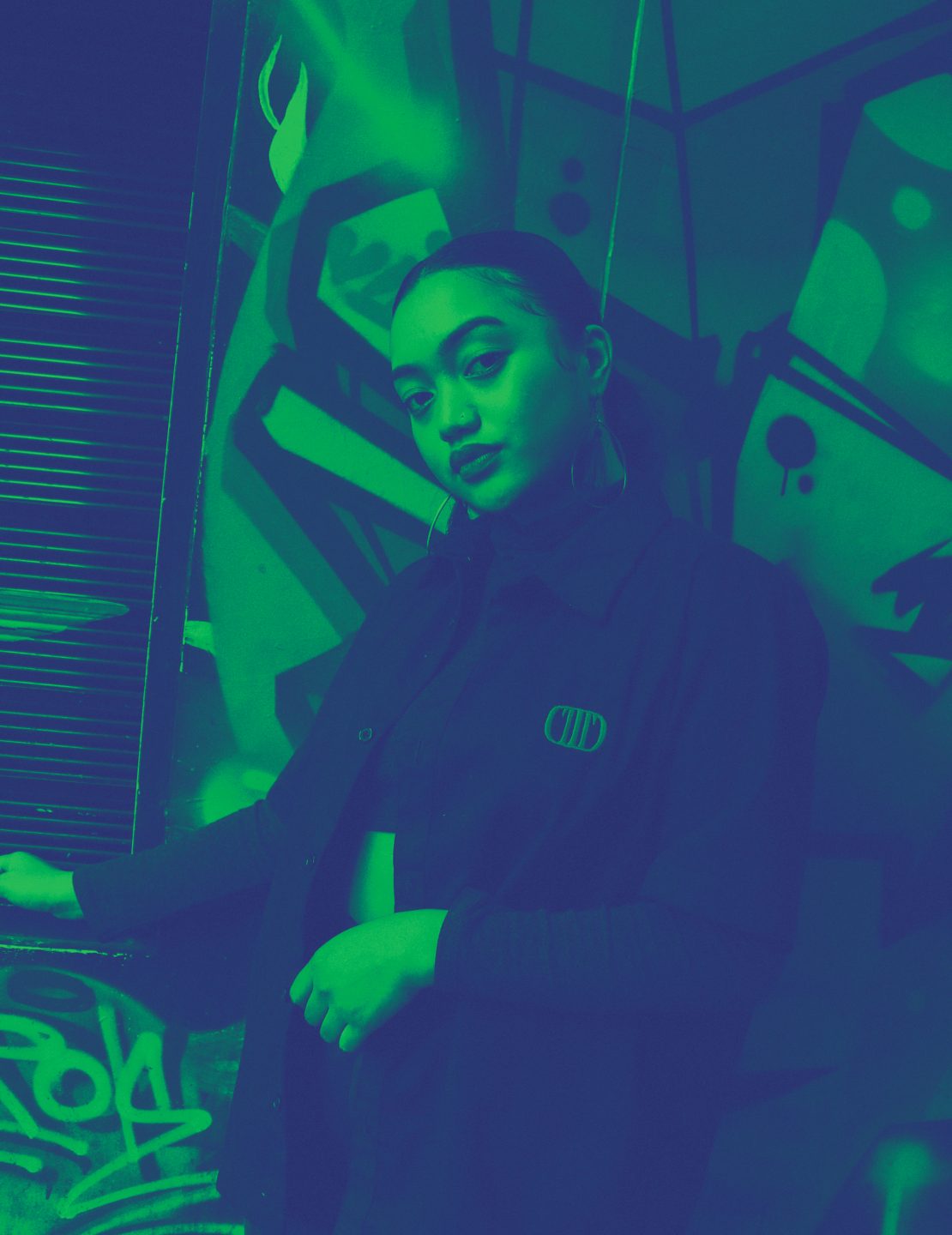
Nicole Anjela (Photo by Kahel)
Have you faced misogyny in this scene?
Bueni: Countless times. Male artists would say I only got here because of my looks, or they would say a woman should just take care of the dirty laundry and serve their sexist mentality.
Shnti: A group of guys made a diss track about us, and I didn’t even know who they were. They rapped about how we should move aside and let the guys show us how it’s really done. They really had the audacity to mention our names, saying we shouldn’t even try to be involved in the scene. That’s just one of the many times we’ve faced it.
Kali: The first time I performed was in 2017. I couldn’t even feel my face. I choked up, and a lot of them laughed and shouted, “Umalis ka na, di ka bagay sa hip-hop!” Yeah, it hurt me a lot, but it didn’t mean that I was going to stop. Years have passed, and I still get disrespect when I perform. But I always remember that I’m here to prove something.
Parvati: To be honest, I’ve even experienced misogyny from other girls. Just keep this in mind: When people judge when you perform, don’t look at them. Mean every word you’re spitting, make it powerful, make them understand whatever you’re talking about. When you’re up on stage, you own it. You’re on it for a reason—people like your music and they want to hear it.
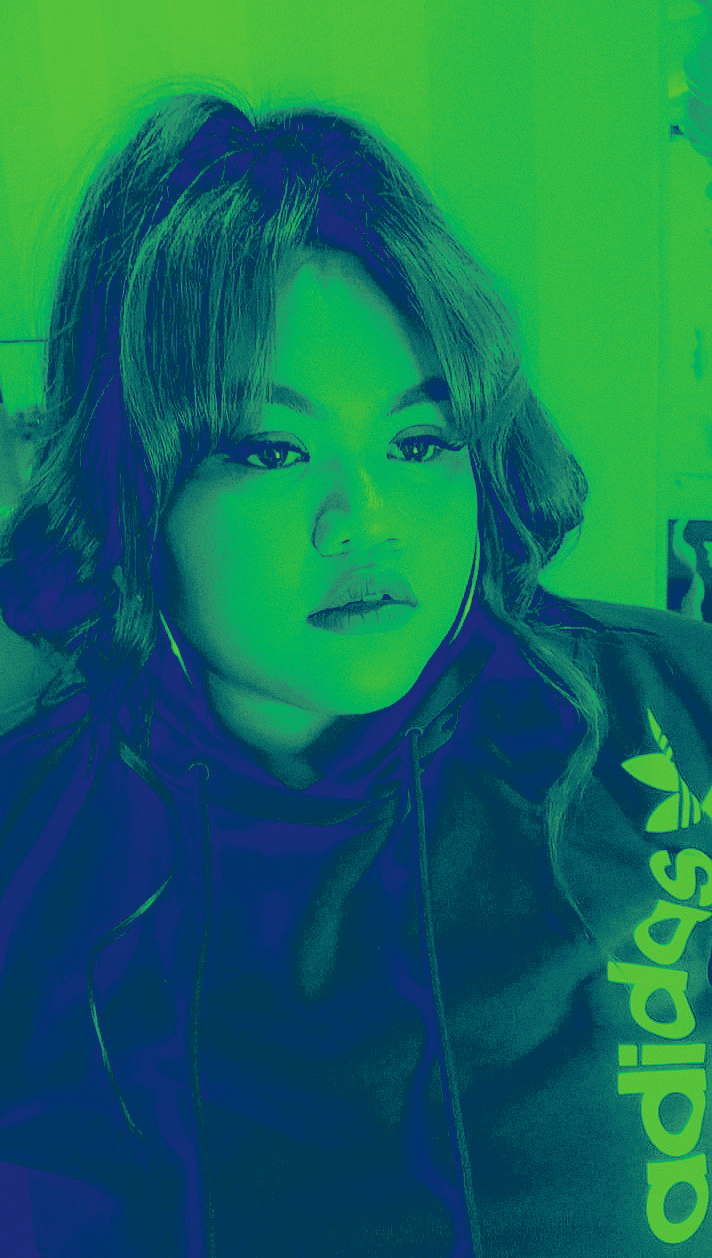
Drea J (Photo by Colourwayy)
The diversity of hip-hop needs to happen now, because we’re already in the future.
Do you think female rappers are more accepted in the scene now?
Shnti: Some have already realized that hip-hop should have no gender boundaries.
Drea J: Female emcees have penetrated the scene without anyone noticing. If you can’t beat them, join them.
Parvati: This generation is more open-minded than the previous one. Every day there’s a little girl that’s out to become the next emcee.
Bueni: I think women supporting women is more than enough. Women were forced to compete with other women back in the day, but since collectives like WeMan started giving women the support they need to build their platforms, it has been the craziest adventure.
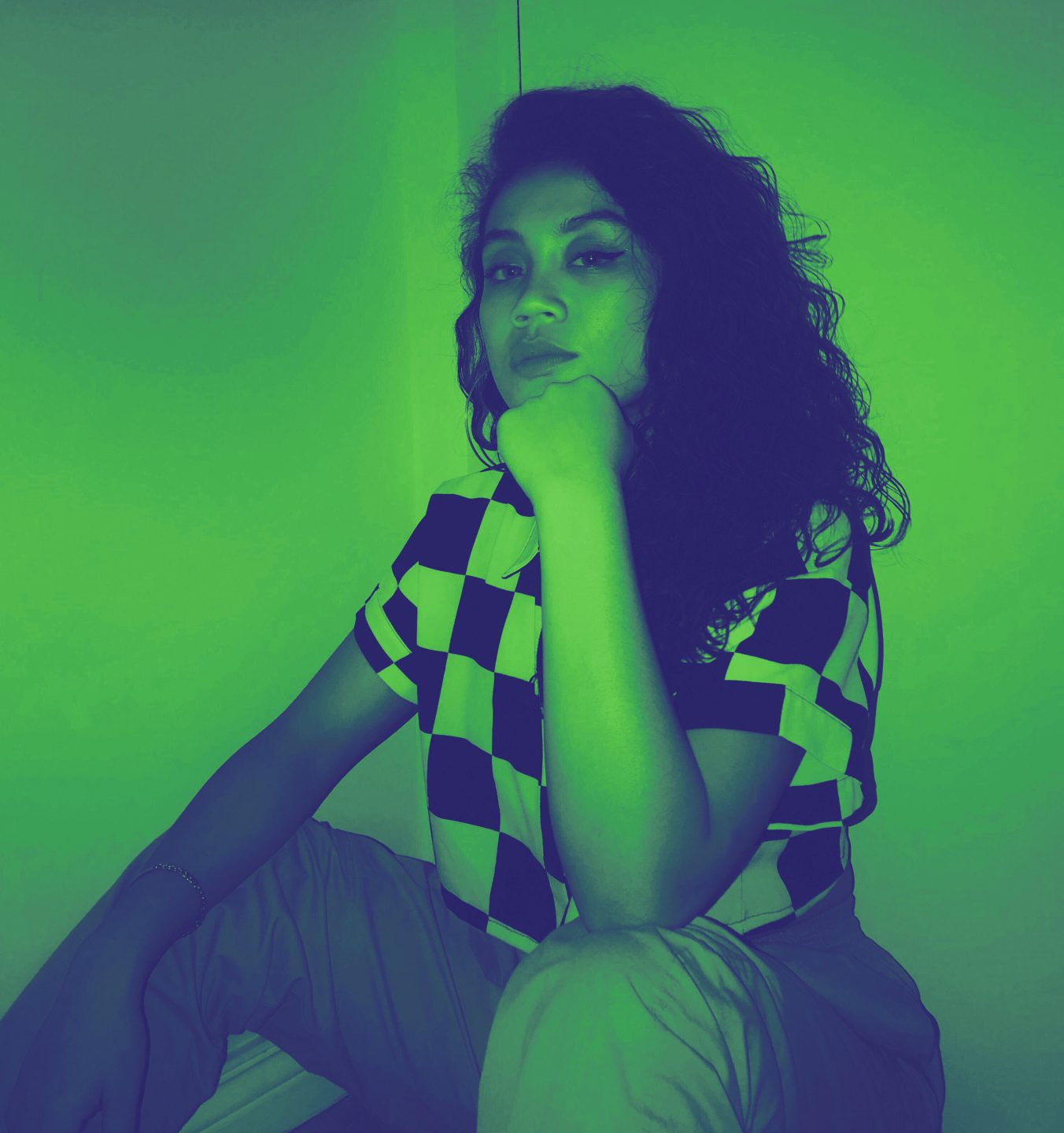
Psyche (Photo by Gail Marquez)
Where do you think the future of diversity in hip-hop is heading?
Bueni: The diversity of hip-hop needs to happen now, because we’re already in the future.
Shnti: I can tell that hip-hop has a lot more in store for us. Hip-hop is not only a genre of music, but it is also a culture, a state of mind, a language, and a style.
Parvati: More women and queer people will rap. The world will be surprised with what hip-hop can offer. We’ll be closer to achieving equality, and with more support, people will gain more confidence to perform. Isn’t that beautiful?
This story was originally published in our fifth anniversary issue and has been edited for web. The digital copy of Scout’s 36th issue can be accessed here.















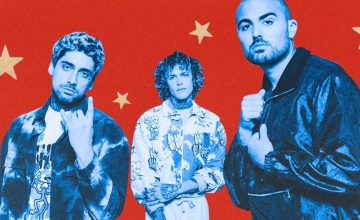
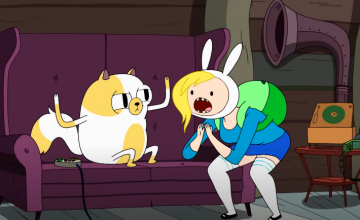
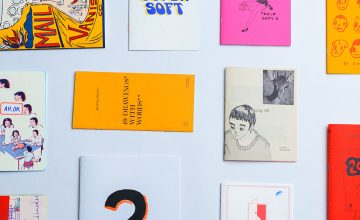






Comments